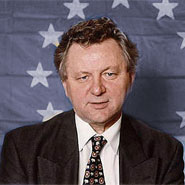

9. European Parliament Internship Questionnaire
1. How did you like your internship in the European Parliament?
I loved my internship! It was my first internship, so I had not had any experience or practical skills and knowledge before. But Dr. Zverina and Lucy were so nice, and I could learn from the basics. Dr. Zverina would explain to me the current issues and the party politics, and Lucy taught me the practical skills for working in the office as well as general things about the European Parliament. I learned so much about how the European Parliament works, what an individual Member and assistant do, and about various issues in Europe and in the world and the dynamics of politics.
2. Why did you choose to study "Peace and Conflict Studies?"
My Program of Emphasis (so-called major in other schools) is "Peace and Conflict Studies and International Politics." I have been interested in foreign affairs since when I was little. As I grew older, I found out about the United Nations and the European Union, and I thought I could contribute to making the world a better place. Then I found this Peace and Conflict Studies program in the school catalogue, and it seemed very interesting and unique. And now I like it so much. We study war from different angles, such as political, economic, and psychological viewpoints. We also study conflict resolution, including mediation and non-violence activities. There are many different approaches to war and peace, but at the same time, there is no one right answer. And that is the interesting part.
3. What do you think about the Europeans?
Before I really knew any European people, I thought the Europeans would be very different from the Japanese or the Americans, although I did not know how different they could be. Then I came to Europe, met some European people, and realized that people are the same anywhere in the world. Of course, there are some differences. The Europeans are more fashionable - they dress nicely every day to go to school or work. They seem to be more mature - although there is no evidence and it depends on individuals. They have their own manner. However, no matter where it is, some people are very friendly while others are too cool for the internationals. Some are afraid to talk to the internationals while others see it as a great opportunity for intercultural communication and foreign language practice. Some like to make noise while others are quiet. Thus, although there are some tendencies and differences in cultures, I would say that there is no big difference in people in different parts of the world. And, by making friends all over the world, you become familiar with different people from different cultures and eventually you feel borderless.
4. What are your plans for the near future?
I will finish my undergraduate studies next year. Then I would love to work at the European Parliament after that! But it is not an option for a Japanese citizen, so I will go back to Japan to look for a job. I would like to work for an international organization that works on international development aid or for a think tank for foreign affairs.
I would like to travel abroad and work for development aid. Eventually, I would like to go back to school and earn higher degrees. But right now, I have so many interests that I cannot narrow down my mind. So I will experience the real world and see what I like the best. At the same time, I liked this internship so much that I may go into the political career.
No matter where I am or what I do, I would like to be involved in foreign affairs somehow and use the experience that I obtained from this European Parliament internship.
Thank you so much.

Noriko Sato
student-assistant to MEP Jaroslav Zvěřina
norip806@hotmail.com
XHTML & CSS by Lubor Mrázek. Number of visitors this page since 2nd April 2006: 6687

